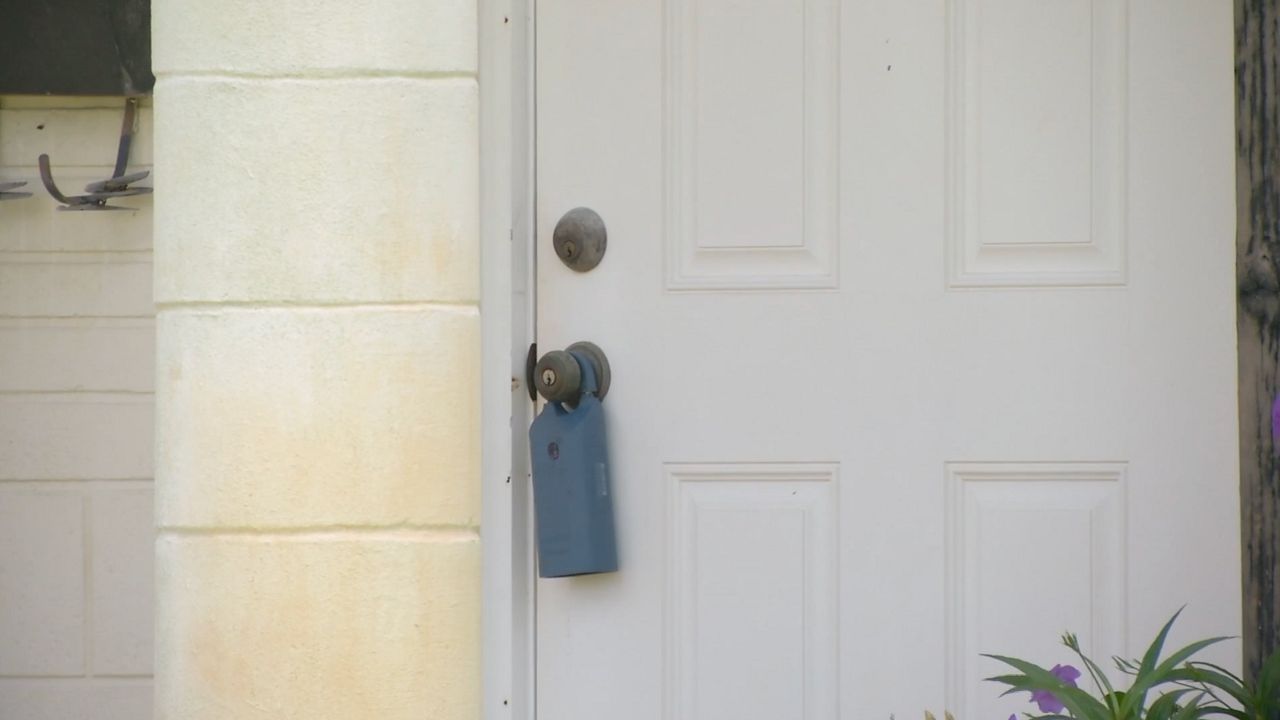As debate continues at the federal level about whether to maintain a moratorium on residential evictions, housing advocates and landlords say pandemic relief is making life easier for tenants struggling to make ends meet in the Pine Tree State — moratorium or not.
“The moratorium isn’t so much needed when landlords are getting paid,” said Greg Payne, director of the Maine Affordable Housing Coalition.
According to the coalition’s data, landlords filed paperwork in district courts throughout Maine to evict 5,376 tenants between July 2018 and the end of June 2019, a figure lower than the totals of the previous four years. From July 2019 to the early days of the pandemic in June 2020, the total number dropped to 3,858 — due in part to the moratorium and courthouses being closed.
The number of filings, however, dropped again to 3,450 during the 12-month period from July 2020 to June 2021.
The moratorium, put in place to provide protection for tenants who couldn’t pay their rent due to pandemic-related economic hardship, has been renewed several times, and officially expired on July 31, but the U.S. Centers for Disease Control and Prevention issued an order on Aug. 3 extending the moratorium until Oct. 3.
That order prompted landlords in Alabama and Georgia to go to federal court in an attempt to block the moratorium. On Friday, a three-judge panel of the U.S. Court of Appeals for the District of Columbia, upheld the moratorium.
In Maine, data suggests fewer landlords are trying to evict tenants, and fewer are doing so for a nonpayment of rent. Landlords who wish to formally evict tenants file papers in court to do so, and Payne said the coalition has been tracking that data to identify trends.
A February 2021 report produced by the association analyzed eviction cases filed in Maine courts prior to the pandemic (January 2019-February 2020) and after COVID-19 hit Maine (from March 2020-November 2020).
According to the report, evictions citing “nonpayment of rent” as the reason dropped from 73% of cases pre-pandemic to 54% starting in March 2020.
At the same time, eviction filings citing “other for cause” went from 14% pre-pandemic to 24% starting in March 2020. Filings citing “no fault” went from 10% pre-pandemic to 14%, and filings with no reason indicated at all went from 3% of cases pre-pandemic to 8% afterward.
Both Payne and Brit Vitalius, president of the Southern Maine Landlords Association, said there are many reasons why a landlord might want to evict a tenant— ranging from bad behavior, damage to a rental property, a property being sold, tenants declining to renew a lease and those who refuse to move out.
Vitalius said if residents are good tenants, landlords don’t want to evict just because of hard economic times.
“I don’t know a landlord who wants to kick out a good existing tenant,” he said.
Payne and Vitalius both credit federal pandemic relief funds with keeping tenants in their homes.
“It’s really been great, in these crazy times, that it’s been there,” Vitalius said.
To date, Payne said, the federal government has paid out more than $53 million in rental relief in Maine. All tenants have to do, Payne said, is sign up for the emergency relief program through the government website.
But, Payne added, they have to sign up, and many do not, mostly because they don’t know about the program. If any tenants are facing eviction for nonpayment, he said, that’s the likely reason.
“The tenants have no idea that they could be protected, so they don’t file,” he said.
Despite that, Vitalius said, a majority of landlords have gotten paid, either by tenants or the federal funding, making filing for eviction over rent payments a rare occurrence.
“The money’s out there. The money’s been out there,” he said. “(Eviction) really hasn’t been necessary.”
Ned Payne, 38, has been a landlord in Portland for 10 years, and now manages 100 units spread out in eight buildings across the city. He said the rent assistance has helped some of his tenants, and he has heard of very few who have not signed up for help when they need it.
“It’s a rare case, because it’s free money to help pay for your rent,” he said.
Ned Payne agreed with Vitalius and the association that many landlords filing eviction papers now are probably doing it for reasons such as behavior or similar problems.
“It’s more so that, than nonpayment,” he said.



